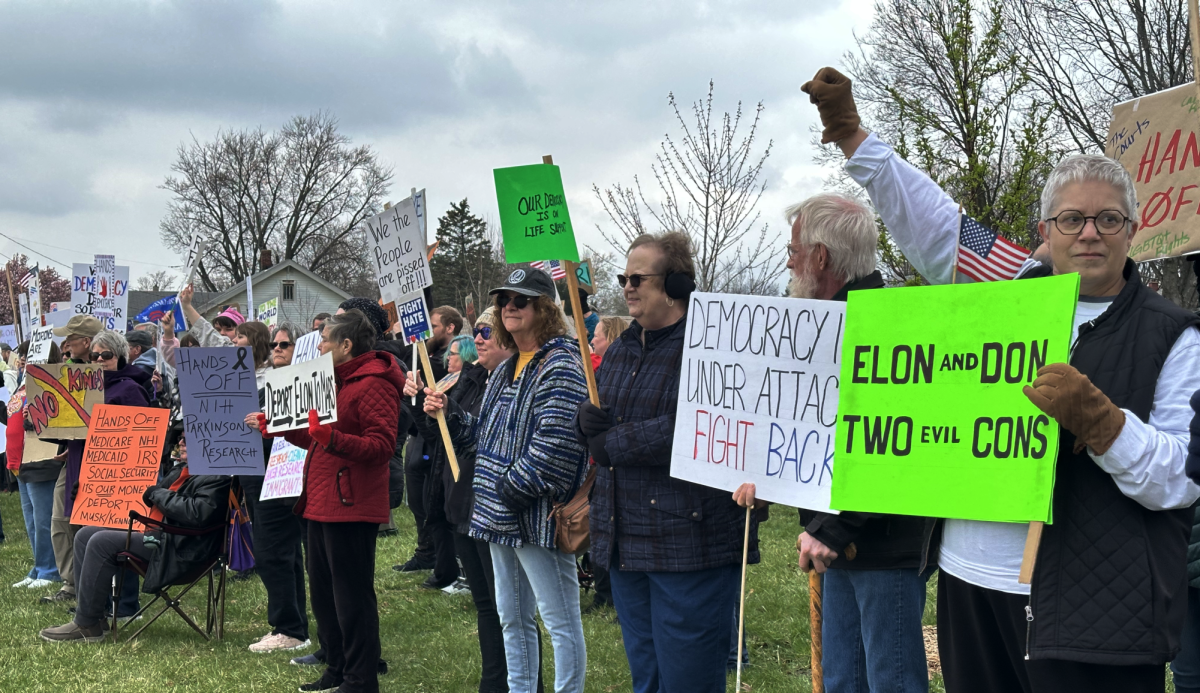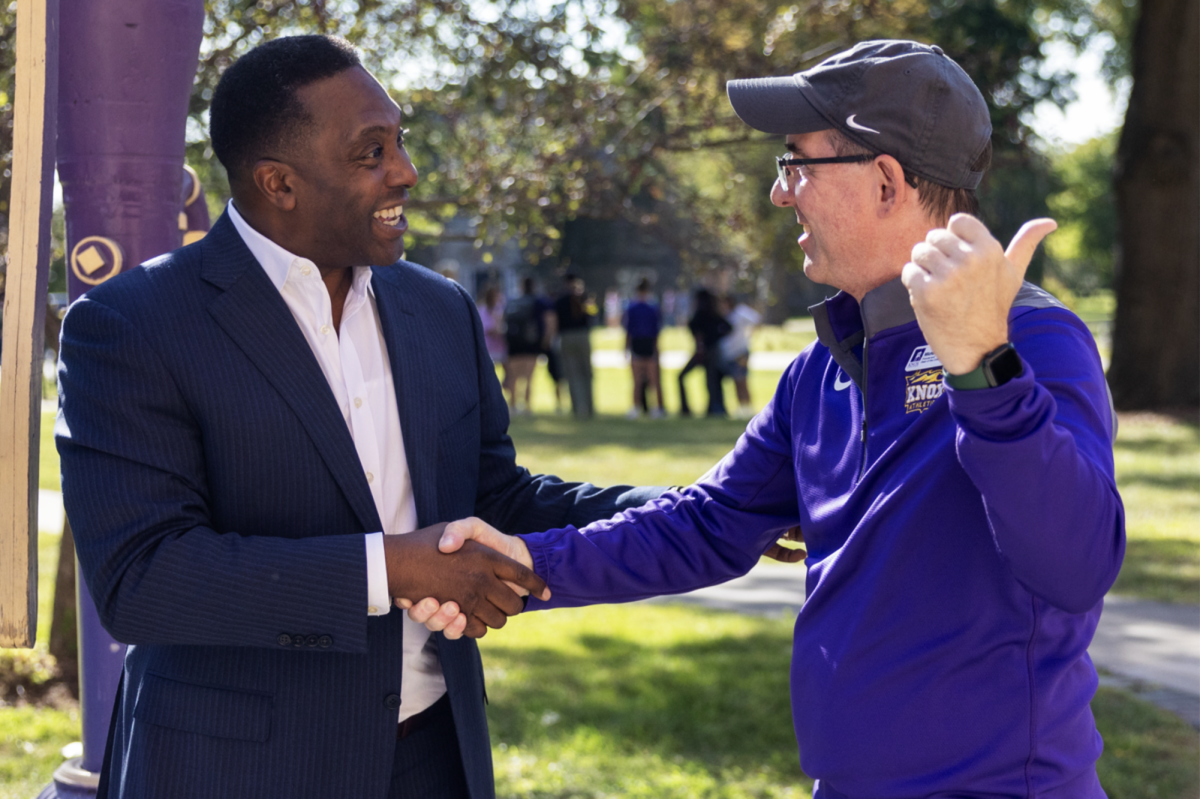A series of investigative articles into the history of Title IX at Knox College
In the summer of 2020, an Instagram account appeared under the name @anontestimonies. The account was managed by an anonymous owner, who created it with the intention of sharing the stories of survivors of sexual assault at Knox College. The account, while keeping survivors’’ identities private, revealed the names and affiliations of the accused perpetrators, implicating fraternities, sports teams, resident assistants, and a variety of clubs across campus.
The majority of these posts, however, were directed towards members of Knox College’s chapter of the Sigma Chi fraternity.
This was not the first time that Knox College experienced issues with sexual assault on campus. In 2014, the U.S Dept. of Education Office of Civil Rights opened an investigation into Knox College in response to an allegation of sexual discrimination regarding a complaint of sexual misconduct in the fall of 2013.
In an email to the campus, former President of the College Teresa Amott wrote that the College had formed a Task Force on Sexual Assault Prevention and Response to meet weekly under then Title IX Coordinator and Associate Dean of the College Lori Schroeder. At the time, Knox was one of 55 colleges being investigated for Title IX violations.
In early May, an NBC article clarified that just because Knox — or any other institution — appeared on the list of colleges under federal investigation, that does not necessarily mean they violated the law. The investigations followed a prioritization of sexual assault investigation on campuses by the Obama Administration.
The terms Title IX, misconduct, sexual assault, and rape each evoke a powerful image for many students, especially those who are survivors.
To understand the meaning of Knox College’s history with Title IX, it is essential to understand Title IX and its processes. A comprehensive page listing Title IX policies and procedures, as well as the contact information for Title IX coordinator Kim Schrader, is available to the public online at Knox College’s website.
There are multiple types of processes for resolving intimate violence under Title IX. Intimate violence is defined as stalking, dating and domestic violence, sexual assault and sexual harassment. Each of these scenarios are processed differently.
In some cases, if a student or mandated reporter reports an incident, the student can simply file the report and be done with the process. The Title IX coordinator will follow up with that student in order to meet and discuss the incident, and if the student does not respond, the process may end there.
However, in some cases, even if a student chooses not to finish the reporting process, it may be necessary for the school to continue the investigation. If the survivor is a minor, if a weapon was involved, or if the incident appears to be part of repeated violations on part of the perpetrator, the federal government requires that the College investigate the incident. If this is the case, the College will inform the survivor that the investigation must proceed, but the survivor is not obligated to participate.
Whether or not an investigation occurs, and whether or not the alleged perpetrator is found responsible or not, most students can obtain a No Contact Order. A No Contact Order from Knox prohibits all communication between two parties, but cannot limit much more than that, as it is not ordered by a court of law.
For some cases, a Voluntary Resolution may be pursued, which does not involve a full-on investigation. In certain cases of sexual harassment, a student can choose this route, but the federal government does not allow this option for survivors of sexual assault, dating violence, or stalking.
A Voluntary Resolution is a mutual agreement intended to cease the problematic behavior and create a safer environment for the survivor and larger campus community. Voluntary Resolution options will look different depending on the specific case, but they’re not available in most instances of Title IX complaint, and are only pursued at the request of the survivor.
If a student chooses to undergo a full Title IX investigation, the length of time required can be strenuous — a typical investigation will last longer than two months.
First, the survivor will meet in person with a Title IX coordinator to provide them basic information about the events (date of occurrence, name of perpetrator, etc.). During this meeting, the Title IX coordinator will offer Interim Remedies and Measures, meaning aid and support. These remedies can be anything from changing residencies to a connection to a rape crisis center or one of many other options.
The College will then bring in an investigator who is trained in trauma-informed investigative procedures. The survivor will meet with the investigator to provide all information about the misconduct as well as any evidence if available. After meeting with the survivor, the investigator meets with the alleged perpetrator and conducts a similar interview. The investigator then holds brief interviews with any witnesses, including those who may have directly observed the incident as well as anyone who may have observed either or both parties directly before or after the incident. After collecting this information, the investigator compiles a preliminary report detailing all the initial evidence. The investigator then sends the preliminary report to both parties so the survivor and alleged perpetrator can provide corrections or clarifications.
With the final additions and corrections, the investigator submits the final report to the Title IX coordinator, along with their finding on the veracity of the allegations. The Title IX coordinator submits the report to an administrator, who will then decide what sanction to give the perpetrator if the investigator found the allegations to be veritable. After the finding and sanction are handed down, both the survivor and the perpetrator have the right to file an appeal. If no reversal of the case is reached, the initial findings will be upheld.
There are many different options students can pursue after harassment or assault, and the Title IX process looks different in every case, according to different situations and people. If you or someone you know is a survivor of sexual assault, you can reach out for assistance. Knox College Counseling Services is available at 309-341-7492. If you feel that you have been mistreated during your Title IX process, students are allowed to file a complaint with the Office of Civil Rights.













